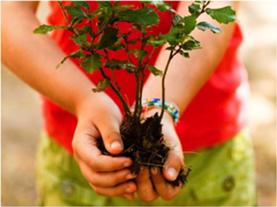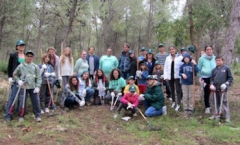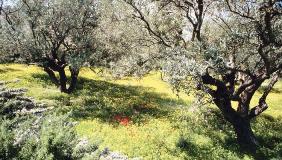Israel After The Storm: Sunshine, Wildflowers, and History
After 6 straight days of freezing cold weather, nearly non-stop rain, and even a whiteout of a short snow blizzard, I started this week with a gorgeous 5 mile hike with my husband.
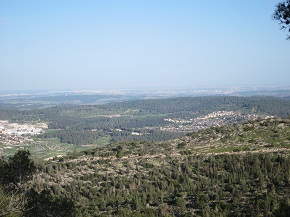
It is a beautiful thing about living in Israel, to know that after a short stint of blessed precipitation to water our dry and thirsty desert soil, the sun will indeed come out.
The trees all glisten in their freshness, and the view is so clear that we can see the Mediterranean Sea from the Judean mountains.

Living in these miraculous hills is that I can just walk outside and be in nature. From where I live in Nes Harim נס הרים (Miracle of the Mountains, or Mountain Miracle – whose name was taken from the Book of Isaiah 18:3 "When a banner is raised on the mountains, you will see it, and when a shofar sounds, you will hear it."
I can see the Byzantine Fortress Hirbet Eitab off in the distance from my patio. I can walk a mere 20 minutes alongside vineyards to a natural spring that thousands of years ago Jewish residents of the Judea were drinking from, thought to be connected to the story of Samson, nestled below the fortress.

And I can take this very gorgeous hike that overlooks the incredible Nahal Sorek and see Hirbet Tura, a fortress of the Hasmonean Dynasty, a lasting remnant of the Chanukah story and one of the last eras of Jewish sovereignty over the Land of Israel.
As I walked along, I could see emerging from the mud and madness of the branches little buds beginning to appear. Here in Israel, we have a handful of these winter-blossoms. There is even one particular flower that blooms specifically in the winter just after a rainfall - soft little whitish-yellowy flowers hang upside down, as if protecting themselves from whatever rain might follow, adding their beauty to otherwise-bare trees.
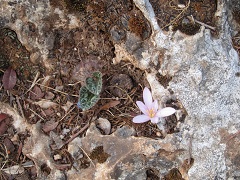
Israeli wildflowers are really a thing of beauty. Their diversity is a reflection of the culture, society and history of Israel – so many different peoples, so many eras, leaders and wars which all come together within this tiny landscape. They brighten the winter, they soften the spring… no wonder that we celebrate Tu B’Shevat, the New Year of Trees, by taking part in the planting of a seed or sapling that we will watch grow over time.
Anyone can share in this celebration through a most meaningful experience – planting your own Israeli wildflower seeds in your home, garden, office, and most importantly, in your heart!
The Plant Israel at Home™ initiative was created to give people all over the world the chance to grow a bit of the beauty of the Land of Israel in their own homes, gardens, and hearts. Such an innovative way of helping people feel connected to a place so far away, and yet so much a part of us.
A perfect example of how a small act can make a big difference.
Recommended for you:
STAY CONNECTED NO MATTER WHERE YOU LIVE
Share your love of Israel as a Virtual Citizen of Israel today!
About the Author


